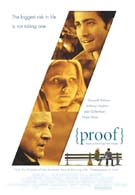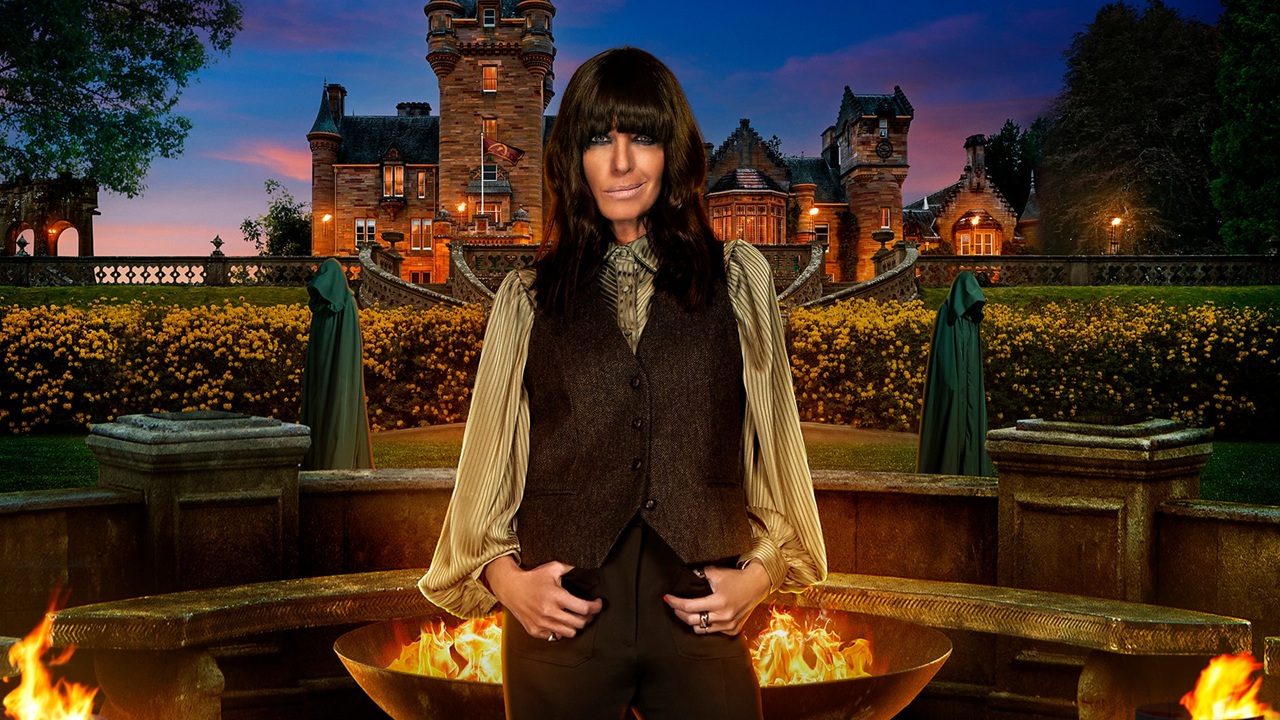The latest offering in the mathematicians-gone-crazy genre is Proof, the John Madden adaptation of David Auburn’s prize winning play. Instead of Mary Louise Parker who starred in the Broadway show, Gwyneth Paltrow plays the title role, giving one of her best performances in years. Wasn’t hard to beat View From The Top, but her role is mesmerizing in a way that earns her top spot in Hollywood. While the movie cannot escape comparisons to Ron Howard’s A Beautiful Mind, it doesn’t necessarily deserve to be paired with that superior picture. It may deal with theorems and psychosis, but it doesn’t pack the same emotional wallop. More like little slaps here and there.
Proof is surprisingly light for its subject matter, and that is something impressive about it. It’s not full of schmaltz and sentimentality to a point that makes cringing a knee-jerk reaction. The movie opens with Catherine (Paltrow) lumping around on a sofa, watching infomercials. Her hair looks like it hasn’t had a brush through it in weeks, and her clothes are equally unkempt. It turns out that—surprise—it’s her 27th birthday, and she is spending it with her remote control. Her dad Robert (Anthony Hopkins), a brilliant mathematician who succumbed to madness, appears with a bottle of champagne to celebrate. She is no mood to party, and as the years pass she begins to question whether she belongs in a loony bin herself. There is ample cause to worry, since her dad died a week ago, though he’s currently hanging out in her living room.
Enter Harold (Jake Gyllenhaal), a brooding math student one year her junior, who idolizes her father’s knack for mathematics. He is drawn to Catherine and wants to be with her, but also wants to scour the attic for proofs and notebooks left behind by her father so that he can publish them. Catherine has strong math abilities too, but her depression debilitates her potential. Her sister Claire (Hope Davis), a bossy sophisticate from New York, comes home to Chicago for the funeral, and shares her opinions on everything from shampoo to relationships. Her humorous-but-probing thoughts may fall on deaf ears, but she is too busy chattering to pay that any mind.
When an intricate proof about prime numbers is discovered upstairs, it becomes confusing as to who actually wrote it. Catherine claims to have solved it, even though it’s written in her father’s handwriting. Could an unstable schizophrenic have solved one of math’s biggest mysteries in his final years of life, or has Catherine unknowingly surpassed her own father’s legacy?
Proof is successful because it blends great performances with a degree of subtlety rarely found in these kinds of movies. It is more of an exploration of possibilities in these character’s journeys, than a holier-than-thou picture trying to profoundly impact our lives. Much of the film incites chuckles instead of hamming up the mental illnesses. Every one of us is scared of turning into our parents, and that makes Catherine’s internal dilemma relatable. She loves her father, but she doesn’t necessarily want to be her father.
While not a great movie, Proof is engaging in a way that math rarely is. The talented cast includes Hope Davis, providing comic relief as the nosy sister with a heart, and Jake Gyllenhaal, proving that he can pull off leading man roles. Anthony Hopkins has threatened to quit acting numerous times, but lucky for us he hasn’t kept his promise. The most surprising turn is by Paltrow, throwing her prissy roles to the side in favor of a more complex and less groomed character. Proof is a welcome reminder that not every movie about craziness has to be equipped with over-the-top antics. Sometimes less is just the right amount.
Your Daily Blend of Entertainment News

